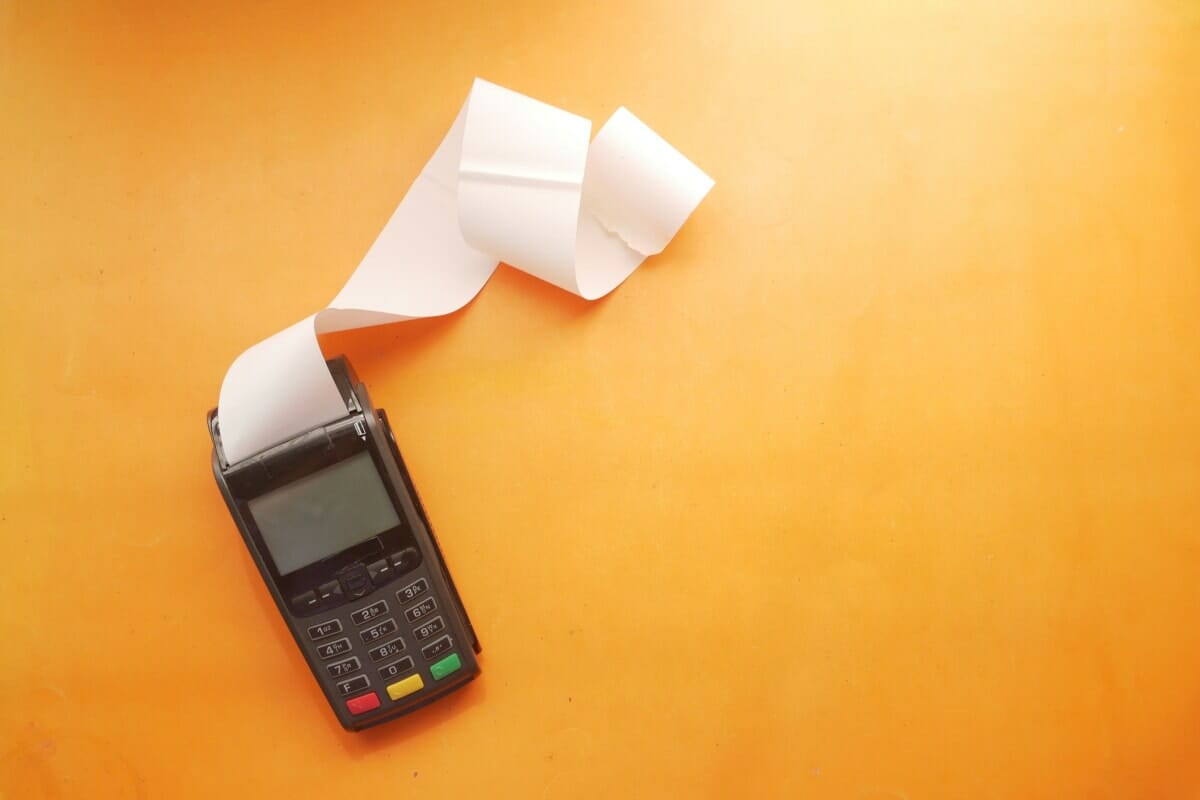Owning and running a business is no easy task. There is so much that you need to manage. It can be overwhelming, especially when you’re new. One of the tasks that you are likely to struggle with is expense tracking. According to studies, small businesses have a difficult time keeping track of expenses and managing money. That is, staying on top of business finances. Since it is crucial that you avoid wasting money, consider the tips mentioned in our post to stay on top of expense tracking.

Why Track Your Business Expenses?
Although expense tracking can seem like a mundane task, it offers a host of benefits.
1. It Increases Financial Awareness
One of the main reasons you have to track your business expenses is that it allows you to become financially aware so that you can improve your money management strategy. Most companies fail as they struggle with cash flow issues and abiding by their business budget. Therefore, you have to account for daily expenses. Otherwise, your expenses would outstrip income and leave you vulnerable, at times, not simply in your business transactions, but with personal funds as well.
2. It Prepares You for Tax Season
Tax season doesn’t have to be tiresome. By keeping track of all your expenses, you could even get some money back on your tax returns. It will also decrease the likelihood of fines. Keeping a meticulous record of your expenses and monitoring bank statements and financial statements will ensure that you know which expenses are tax deductible.
3. It Ensures You Pay Employees on Time
Tracking expenses will ensure that you are never in a situation where you cannot pay your employees their salary. Timely and accurate payroll will help keep everyone happy, help you protect your reputation, and allow you to attract stronger talent.
How To Track Expenses
Of course it sounds like a wonderful idea. But you’ve got to know exactly how to track expenses the right way before you can reap its many benefits. Let’s make tracking expenses an integral part of your business plan, Here are some important steps to take to ensure you do it right.
1. Create a Separate Business Bank Account
When it comes to expense tracking, you need to consider opening a separate bank account for your business. You should consider multiple accounts for business income, business savings, business-related expenses, and more.
The last thing you want is to mix up your personal expenses with business expenses. Once you have created your company, you have to open a new bank account to separate your personal and business accounts. Not only does separating bank accounts help with keeping finances organized, but it also helps simplify everything and makes it easier for you to submit your accounts for both federal taxes and applicable state taxes.
Moreover, having a business credit card will eliminate any confusion associated with personal finances. It is quite easy to get a credit card for your business. Otherwise, you have the option of getting a debit card. A credit card is an absolute must for benefitting from the additional funding and to build your business credit rating.
In fact, you should be able to find a specialized card for small businesses. It will enable you to make payments (both your credit card payments, and payments to vendors) without having to worry about cash flow issues. Also, it makes for an excellent strategy to avoid a cash flow shortage.
Managing cash flow, expenses, along with loan and credit card payments shouldn’t be as difficult as some people make it. You can use accounting software and an experienced bookkeeping service to help you stay on top of these as well.
2. Use an Expense Tracker
Another great tip for keeping track of business expenses is using an expense tracker. It will allow you to stay on top of everything. There are plenty of business expense management tools out there for you to choose from. You can easily use one on your mobile or laptop.
It will ensure you can manage each expense instantly without having to perform additional manual entry procedures. It doesn’t get better than this. Only when you give it a try will you come to realize just how practical and time-saving it is.
You should consider using a few mobile apps to determine which works best for you. Generally, you will just need to log the expenses and the tool will perform all calculations for you. The app will also sync with your accounting software and track every single expense. Therefore, you will get to use a centralized system for managing expenses.
Stay on top of supply purchasing, business mileage, additional business purchases, entertainment expenses, variable expenses, business loan payments, and much more.
3. Save Your Business Receipts
Next, you have to scan each business expense to ensure that you overlook nothing. It is important that you have access to all your business expense receipts so that you are able to verify each expense in detail and be ready in case of an audit.
Since you have a separate business account, you will have separate business receipts which you can store. Your expense app and software should enable you to scan each receipt from your purchases using your business credit card. Then, it will log all information so you can quickly account for everything, suddenly making your smartphone the ultimate tool.

4. Immediately Record Every Expense
Whenever you incur an expense, you should record it immediately as you might forget about it later on. In order for your business to be a success, you have to avoid overlooking anything. It is necessary that you account for each expense so that you maintain accurate records.
Keep in mind that it isn’t easy to remember every detail. Even if you have a tendency for remembering facts, it is best that you don’t take any risks. Instead, you should simply record the expenses on a business expense tracker application connected with your business accounting software.
5. Determine Tax-Deductible Expenses
Lastly, you have to know which expenses are considered tax-deductible. This will ensure that you get to deduct these expenses when calculating the taxable income of your business. You need to monitor tax-deductible expenses as they will help you save a great deal of money.
Every successful business owner takes advantage of tax deductions. Some of the most common tax deductions that you should look out for include:
- Office expenses
- Tools and equipment
- Self-education expenses
- Clothing and laundry expenses
- Vehicle and traveling expenses
- Other work-related deductions
It is important to access your state’s taxation codes and rules online to make sure you’re doing everything right. This resource will also explain which business expenses are considered tax-deductible.
Conclusion
Tracking business expenses is necessary for running a successful company. If you don’t take expense tracking seriously, you could end up suffering cash flow issues, supply problems, payroll issues, and much worse.
Fortunately, the above tips will allow you to track all expenses incurred by your small business with confidence. Make sure to use the best applications and accounting software choices to stay organized and up to date. It is also worth it to hire a bookkeeper to handle expense tracking. A bookkeeping service provider will have the experience, knowledge, and technology needed for top-notch money management.
Sound Accounts brings the benefits of top-notch bookkeeping and to businesses of all sizes. Get organized, improve your money management, stay compliant, and make the most of your dollars. Contact us today to learn more and find out how to qualify for six months of free QuickBooks.
To learn more about expense tracking, check out our frequently asked questions below.
FAQ
What is the best way to track expenses for a small business?
The best strategy for tracking small business expenses is working with a bookkeeping service provider. There is only so much you can do on your own. It is wise to turn to an experienced professional with the knowledge base and tools necessary to achieve the best results. Afterall, you have your business to run.
What strategies should I use to track my expenses?
The following strategies will enable you to track all of your expenses.
Activate Your Bank SMS: A great way to track each expense is by activating the bank SMS. It will ensure that you know whenever a payment is made using your business bank account.
Record Every Transaction: Since you would eventually forget about the transactions incurred, you need to document each one immediately.
Categorize Your Transactions: It is a good idea to categorize your transactions so that you can determine which ones need to be eliminated.
What should small businesses keep track of?
When it comes to running a small business, you are likely to incur a variety of expenses including:
- Payroll expenses
- Interest expense
- Retirement plans
- Employee benefits
- Insurance premiums
- Home office expenses
- Depreciation of equipment
- Rent or mortgage payments
What are the 4 types of expenses?
In order to get a handle on your business, you need to know about the different types of expenses common to business owners.
Fixed Expenses: One type is fixed expenses. These expenses happen every month or year and are of a fixed amount. Some examples of fixed expenses include car payments, cell phone bills, mortgages, and membership fees. Fixed expenses are easy to track and anticipate but can change over time based on changing needs within your business.
Recurring Expenses: Also known as day-to-day expenses, recurring expenses are unpredictable, unlike fixed expenses. However, they are still reliable and can be budgeted. Some examples of recurring expenses include gasoline and electricity bills.
Non-Recurring Expenses: Most business owners tend to be worried about non-recurring expenses as they cannot be anticipated and are likely to affect your budget adversely. These expenses can either occur once or a few times a year. They are likely to be hefty and can take a toll on your cash flow. Some examples of non-recurring expenses include car registration fees, moving expenses, and maintenance costs.
Whammy Expenses: Whammies can throw your business under the bus. These are frustrating to deal with as they are incredibly unpredictable. Since you don’t know when whammy expenses will occur and how much you’ll have to spend, you may need to rely on your emergency fund or a loan to pay for them.



